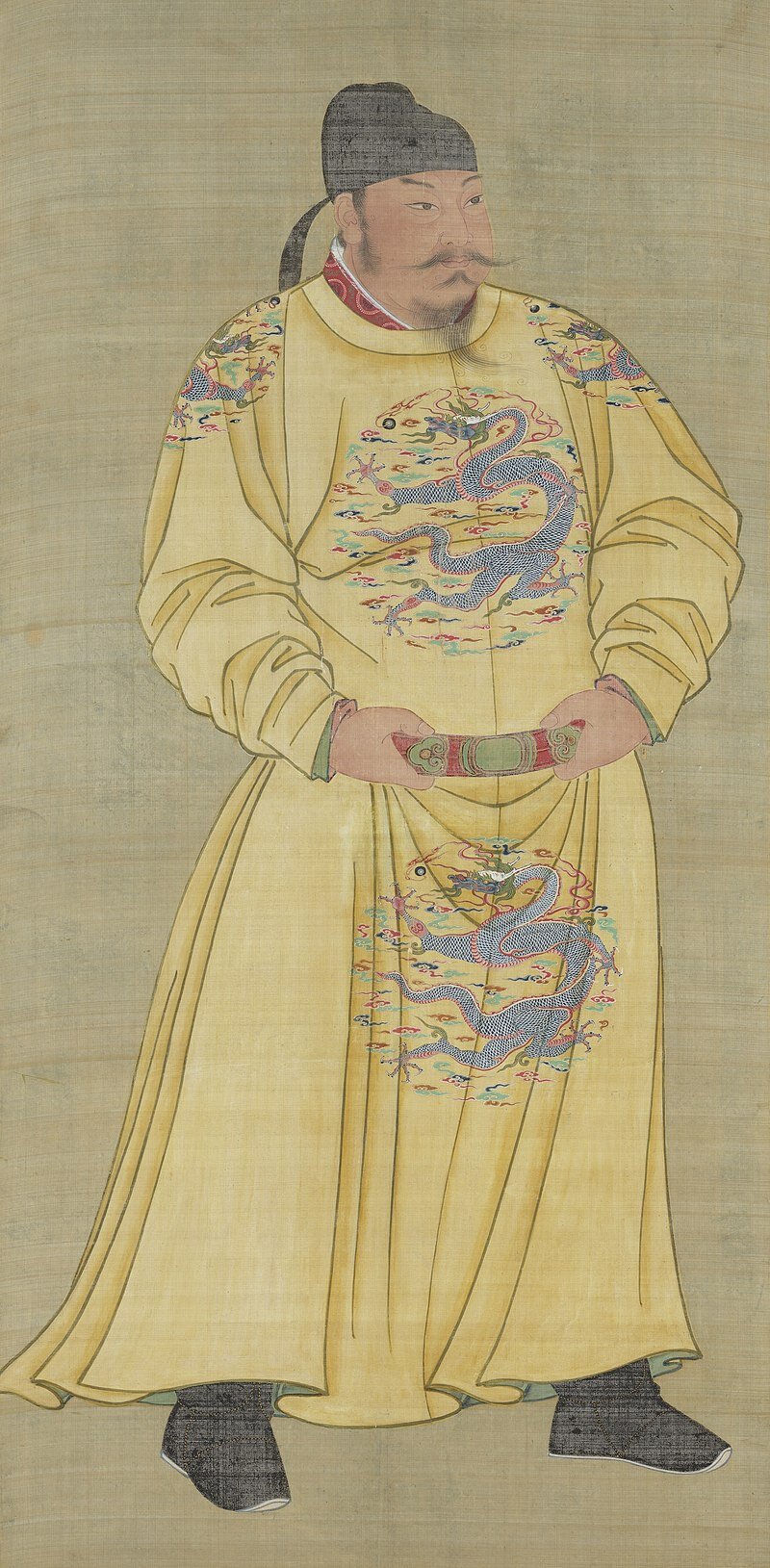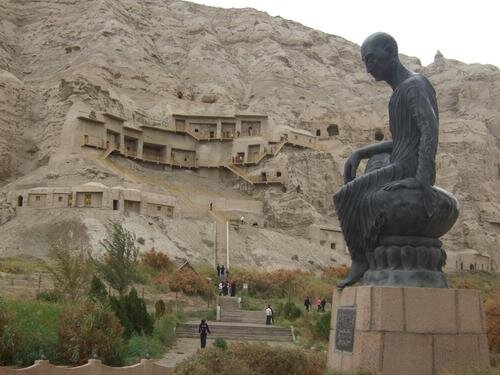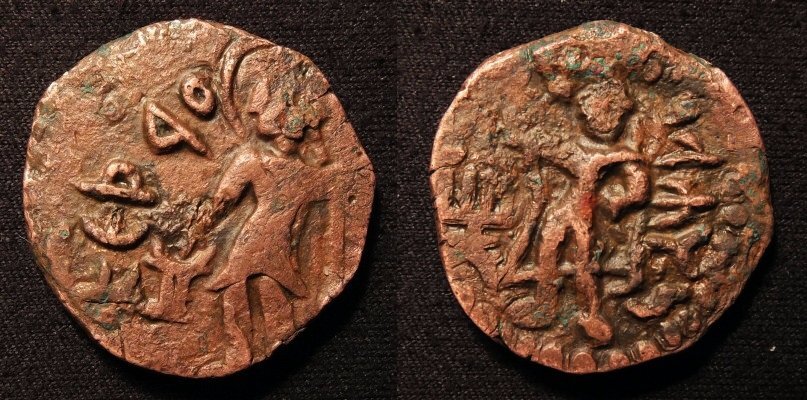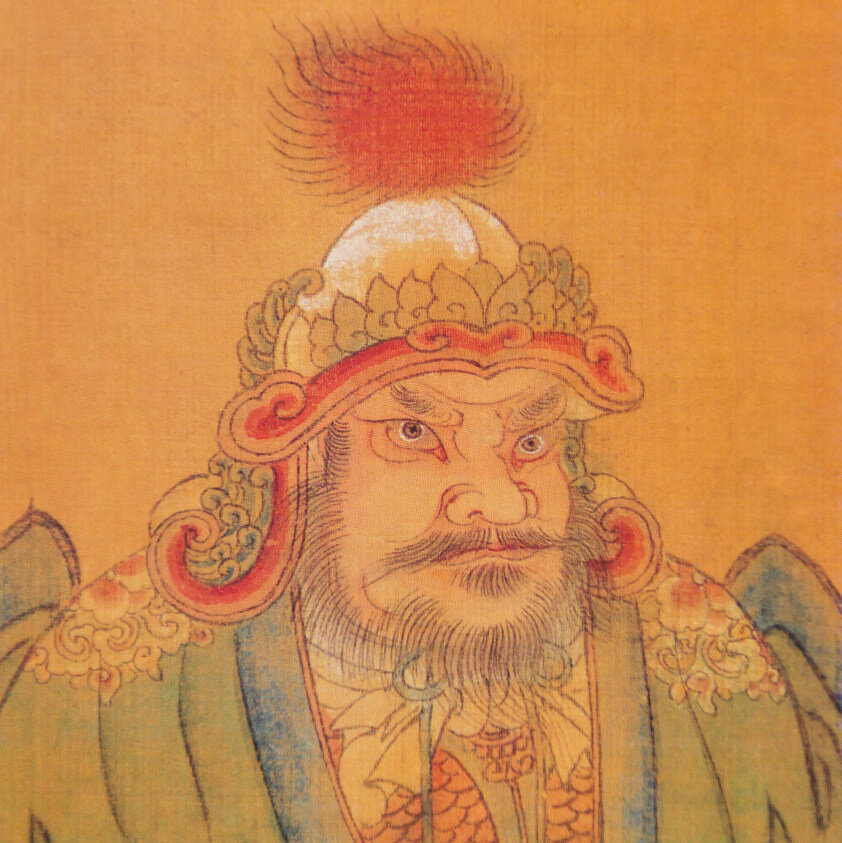Ep. 246 | The History of Xinjiang (Part 3)
More Han Dynasty for you in this Part 3 episode with a special focus on Ban Chao et fils. Back in those Han Dynasty days, Xinjiang was still considered very far away and not so easy to hold onto.
From the Han till the Tang, as Silk Road riches continue to grow along the trade routes, China will be in and out of the Western regions and face all kinds of competition for the great wealth contained within the Tarim and Turpan basins.
Listen On Your Favorite Podcast Player
Terms in Episode
| Pinyin/Term | Chinese | English/Meaning |
|---|---|---|
| Aksu (Ākèsū) | 阿克苏 | Known as Gumo (see above) during the Han Dynasty. Today the capital of Aksu Prefecture |
| Bùrù Hǔxúe Yān Déhǔzǐ | 不入虎穴焉得虎子 | You can’t catch tiger cubs without entering the tiger’s lair…the Chinese version of our Nothing ventured nothing gained |
| Bān Chāo | 班超 | Great Chinese military hero and diplomat extraordinaire who lived from 32 to 102 CE. Pacified Xinjiang for the Eastern Han Empire |
| Bān Xióng | 班雄 | Ban Yong's elder brother. Ban Chao's oldest son |
| Bān Yǒng | 班勇 | Youngest Son of Ban Chao |
| Cháng Huì | 常惠 | Han diplomat and soldier who brought the Kingdom of Kuch over to the Han Empire's side |
| Cháng’ān | 长安 | Present day Xian, in Shaanxi province. Capital of the Western Han, the Tang and a few other dynasties |
| Chéngyǔ | 成语 | Chinese idioms or sayings |
| Dà Qín | 大秦 | Ancient Rome |
| Dūnhuáng | 敦煌 | City in western Gansu famous for the Mogao Grottos and the treasures carted away by Air Aurel Stein and others |
| Emperor Xuān | 汉宣帝 | Han Dynasty emperor from 74 to 48 BCE |
| Emperor Zhāo (Hàn Zhāodì | 汉昭帝 | Han Dynasty emperor from 87 to 74 BCE |
| Emperor Ān | 汉安帝 | Emperor An of Han, reigned from 106-125 CE |
| Fù Jièzǐ | 傅介子 | Chinese military man who led the secret mission to go teach the king of Loulan a lesson |
| Guìshuāng | 贵霜 | Empire better known in the West as the Kushan Empire. They originally came from the Great Yuezhi |
| Gān Yīng | 甘英 | Famous Chinese ambassador sent by Ban Chao to establish relations with Da Qin (among other tasks) |
| Gānsù province | 甘肃省 | Western province of China where Dunhuang and the Hexi Corridor are located |
| Gūmò | 菇墨 | Ancient Tarim Kingdom, located near today’s Ruòqiāng 若羌 |
| Huáng Wénbì | 黄文弼 | 1893-1966, Renowned archaeologist who specialized in Xinjiang |
| Huò Qùbìng | 霍去病 | 140-117 BCE, Great Han general known for his battles and victories in the west of China |
| Hàn Emperor Yuán | 元帝 | Han Emperor from 48-33 BCE |
| Hàn Hédì | 汉和帝 | Han Dynasty emperor from 88 to 106 CE |
| Hàn Wǔdì | 汉武帝 | One of greatest Chinese emperors of all time. Reigned from 141-87 BCE |
| Héxī Corridor | 河西走廊 | Also known as the Gansu Corridor, the main road from westernmost China to the easternmost Tarim Basin where the northern route of the Silk Road began |
| Hòu Hàn Shū | 后汉书 | The Later Book of Han, the official imperial history of the time |
| Jìn Dynasty | 晋朝 | Dynasty that lasted 265 to 420, divided between Western and Eastern Jin |
| Jūshī | 车师 | Located in present day Turpan, once a great and ancient kingdom. Also known as Gūshī 姑師. Will be discussed next episode |
| Kucha | 龟兹 | Located in modern day Qiuci in Xinjiang. Site of one of the most glorious kingdoms in the Tarim Basin |
| Luó Guànzhōng | 罗贯中 | Alleged author of the classic novel "Romance of the Three Kingdoms" |
| Lóulán | 楼兰 | Known also as Krorän, an ancient kingdom on the north shores of Lop Nor. Loulan was later renamed Shanshan after China took it over |
| Lǐ Chóng | 李崇 | The final Protector General of the Eastern Han's |
| Míng Emperor | 汉明帝 | Eastern Han Emperor from 58-75 CE |
| Qiūcí | 龟兹 | Ancient silk road city and a major stop on the Silk Road. Location of the Kingdom of Kucha |
| Shànshàn | 鄯善 | The former Kingdom of Loulan, renamed Shanshan after Fu Jiezi did his thing |
| Suí | 隋朝 | The Sui Dynasty 581-618, more about them in Part 6 |
| Tiānshān | 天山 | The Heavenly Mountains, located north of the Tarim Basin |
| Tóubǐ Cóngróng | 投笔从戎 | To cast aside the pen to join the military…give up literary pursuits for a martial life |
| Túntián | 屯田 | “state farms worked by Han soldiers.” |
| Western Hàn | 西汉 | The Chinese dynasty founded by Liu Bang. The Western Han is also known as the Former Han and ran from 206 BCE to 9 CE |
| Wáng Mǎng | 王莽 | Han official who lived from 45 BCE to 23 CE. Overthrew the Han Dynasty and set up his own |
| Wèi Qīng | 卫青 | Died in 106 BCE, another great Han general known for his battles and victories in the west of China with Huo Qubing |
| Wūsūn | 乌孙国 | One of the Indo-European semi-nomadic steppe people. They came from around Gansu |
| Wǔhú | 五胡 | "The Five Barbarians", name applied to northern steppe nomads who stressed out China from time immemorial |
| Xinjiang | 新疆 | The area that is now contained in the Xinjiang Uyghur Autonomous Region in China. Also known by many names prior to 1884 |
| Xiōngnú | 匈奴 | A once powerful confederation of tribes whose empire once stretched from the eastern reaches of the Mongol homeland and into East Central Asia |
| Xīn Dynasty | 新朝 | Dynasty established by Wang Mang that lasted from 9-23 CE. |
| Xīyù Dūhù | 西域都护 | the Protector General of the Xīyù ….the Western Regions |
| Yuèzhī | 月氏 | A nomadic people originally based in and around Gansu Province |
| Yùmén Pass | 玉门关 | The Jade Gate Pass in Gānsù Province, just beyond historic Dūnhuáng |
| Yīlí Valley | 伊犁谷 | Beautiful area watered by the Yili River in Kazakhstan near the Xinjiang border |
| Zhāng Qiān | 张骞 | The great Han adventurer who journeyed to the West between 138-126 BCE and whose story is immortalized in ancient Chinese texts |



























In this arguable milestone episode, we finally get around to the Uyghurs, discuss their ancient history and examine how they rose from one of several tribes in a Turkic confederation to their own Khaganate.